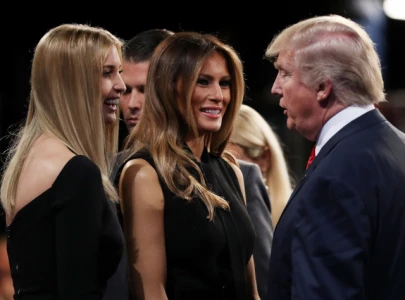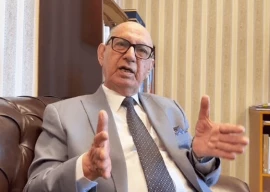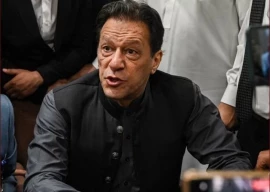
After a judicial inquiry commission identified shortcomings in the top poll supervisory body, the government has apparently fast-tracked a hitherto sluggish process of overhauling the country’s electoral system.
The 34-member Parliamentary Committee on Electoral Reforms announced on Tuesday that it has completed 80% of the job and gave its subcommittee one-month time to evolve consensus on proposed constitutional amendments.
The 11-member subcommittee, which was formed on October 24 2014, has developed consensus on 13 proposed constitutional amendments and is working on many thorny issues. The subcommittee has also agreed on the consolidation of all six election-related laws in one manual.
Read: PM tells aides to prepare vote reforms agenda
These revelations were made by Finance Minister Ishaq Dar and MNA Zahid Hamid, who respectively head the reforms panel and its subcommittee.
“Today, we have handed over judicial inquiry commission’s report to the subcommittee to deliberate the shortcomings of the Election Commission of Pakistan (ECP) as pointed out by the inquiry commission,” Dar said.
He said the subcommittee shall complete its task and submit its report to the committee within one month. The subcommittee in its fourth presentation to the reforms panel said that it has so far developed consensus on 13 proposed amendments in the Constitution. “Some of the contentious issues like senator’s direct election and nomination of female candidates are still under deliberations,” he said.

Dar said the issue of giving right to vote to overseas Pakistanis would also be addressed as a two-member committee, comprising Pakistan Tehreek-e-Insaf (PTI) leader Dr Arif Alvi and MNA Tariq Fazal Chaudhry, will submit its recommendations to the subcommittee in the coming days.
“Within 10 days, the subcommittee will finalise undecided issues and will forward its consensus or undecided report on proposed constitutional amendments to the reforms panel. “However, the draft on consensus points is being prepared and it is hoped that within one month the draft would be sent to the reforms panel which would be forwarded to the concerned authorities,” he added.
Agreed amendments
Briefing the media on the agreed points, Zahid Hamid said six election-related laws – Delimitation of Constituencies Act, 1974; Electoral Rolls Act, 1974; Political Parties Order, 2002: Allocation of Symbols Order, 2002; Election Commission Order, 2002; and partly, the Representation of the People Act, 1976 (RoPA) – would be consolidated in one manual.
He said the issues of electronic voting machines and biometric verification were discussed in detail. “The voting machines are being used only in three countries of the world while most countries have scraped it,” he said.
Hamid said the ECP was going to exercise biometric verification of voters in the upcoming by-election at NA-19 in Khyber Pakhtunkhwa.
Hamid said the working group on overseas Pakistani voters would soon submit its report. “The subcommittee proposed amendments in Article 140-A to give a legal cover to the local government elections in the provinces and in cantonment boards. If the term of the local governments ends, then within 120 days fresh election shall be held.”
Hamid said the panel agreed that ECP members and chief election commissioner (CEC) might also be chosen from among technocrats and bureaucrats. Currently, only retired judges are eligible to become ECP members and the CEC.
The subcommittee proposed to empower the ECP to take disciplinary actions against the polling staff. “The subcommittee considered recommendations sent by the Women’s Parliamentary Caucus, and decided to recommend to the reforms panel that if the number of women voters in a constituency is less than 10% of the total votes, the ECP should declare the election void,” he said.
Read: ECP to take cosmetic measures to deflect growing criticism
hamid said the distance of polling stations was also recommended to be reduced from two kilometres to one kilometre. “The subcommittee has worked to make sure speedy disposal of petitions at election tribunals.”
“The subcommittee has directed ECP’s senior draftsman and secretary to examine provisions in laws of other countries regarding limit on the number of seats a candidate may contest,” he said.
The 34-member Parliamentary Committee on Electoral Reforms was formed on the request of Prime Minister Nawaz Sharif on July 25, 2014 on one point agenda to propose electoral reforms.
Of the 34 members, 22 are MNAs and 12 are senators. The panel represents all political parties in parliament. Both the main panel and its subcommittee have so far held their 36 meetings.
Published in The Express Tribune, July 29th, 2015.

1726117332-0/Megan-Thee-Stallion-(1)1726117332-0-165x106.webp)









1735025557-0/Untitled-(96)1735025557-0-270x192.webp)











COMMENTS (3)
Comments are moderated and generally will be posted if they are on-topic and not abusive.
For more information, please see our Comments FAQ